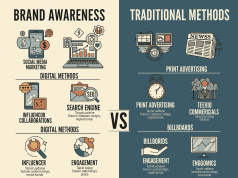In the rapidly evolving world of digital marketing, the complexity of managing advertising campaigns has grown exponentially. This is where ad tech, particularly campaign management software (CMS), comes into play. Understanding the essentials of campaign management software is pivotal for marketers aiming to optimize their advertising efforts and achieve measurable results.
What is Campaign Management Software?
Campaign management software is a tool that facilitates the planning, execution, tracking, and analysis of advertising campaigns across various channels. It centralizes campaign data, automates tasks, and provides insights that help marketers make informed decisions. These platforms can handle multiple advertising channels, including display ads, social media, search engine marketing, and email marketing.
Key Features of Campaign Management Software
Multi-Channel Integration
- Modern CMS platforms allow marketers to manage campaigns across various channels from a single interface. This integration ensures that messaging is consistent and helps streamline reporting.
Automation Tools
- Automation features help in executing repetitive tasks such as ad scheduling, bidding, and reporting. This not only saves time but also reduces the risk of human error.
Performance Analytics
- Most CMS platforms offer robust analytics tools that provide insights into key metrics such as click-through rates (CTR), conversion rates, and return on ad spend (ROAS). This data is crucial for optimizing campaigns in real-time.
Audience Targeting
- Effective targeting capabilities allow marketers to reach specific demographics or psychographics, increasing the relevance of ads and improving engagement.
Creative Management
- Campaign management software often includes tools for designing, storing, and optimizing ad creatives. Marketers can test various creative formats and headlines to see what resonates best with their audience.
- Budget Management
- With built-in budgeting tools, marketers can set spending limits, allocate funds across channels, and track expenditure to ensure campaigns stay within budget.
The Benefits of Using Campaign Management Software
Enhanced Efficiency
- Streamlined workflows and automation lead to significant time savings, allowing marketers to focus on strategy rather than manual tasks.
Improved Collaboration
- Team members can collaborate more effectively with centralized project management features, ensuring everyone is on the same page.
Data-Driven Decision Making
- With access to real-time analytics, marketers can make quick, informed decisions — adjusting campaigns based on what the data indicates.
Scalability
- As businesses grow, campaign management software can scale to accommodate increased complexity and volume, making it easier to expand marketing efforts.
- Cost-Effectiveness
- By optimizing ad spend based on performance metrics, marketers can achieve better returns and reduce wasted expenditure.
Choosing the Right Campaign Management Software
When selecting a CMS, businesses should consider several factors:
Understanding Business Needs
- Identify specific goals and what channels you want to manage. Not all software fits all marketing strategies.
User Experience
- The platform should be intuitive and easy to navigate, allowing team members to use it effectively with minimal training.
Integration Capabilities
- Ensure the CMS integrates well with other essential tools in your marketing stack, such as customer relationship management (CRM) systems or data analytics platforms.
Support and Training
- Opt for vendors that provide strong customer support and training resources to help your team maximize the software’s potential.
- Budget Constraints
- Assess the pricing structure of the software, ensuring it aligns with your budget while delivering the necessary features.
Conclusion
In the realm of digital marketing, campaign management software plays a critical role in managing and optimizing advertising efforts. By understanding the essentials of CMS — from its features and benefits to how to choose the right platform — marketers can better navigate the complexities of ad tech. With the right tools in place, organizations can achieve more effective and efficient campaigns, ultimately driving better results and higher ROI in an increasingly competitive landscape.









